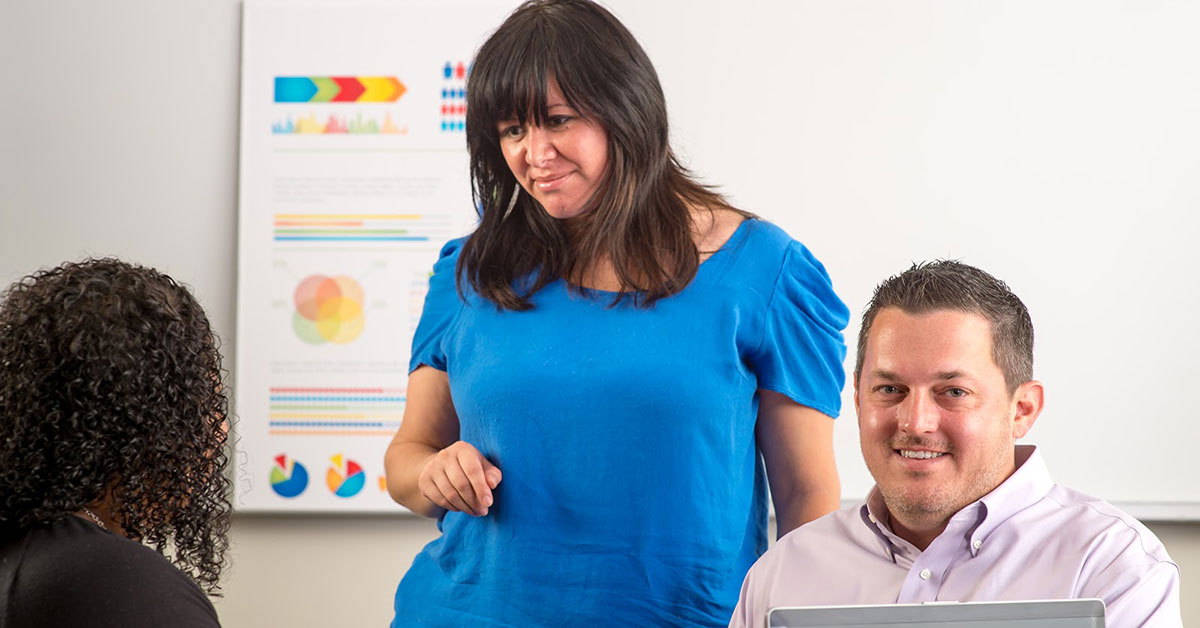Leveraging Technology to Transform Education

[Written by Dr. Sarah Martinez, Leander ISD Director of Research & Evaluation and CTX Instructor]
It’s hard to imagine, but it was one year ago that I found myself pouting that the SXSW-EDU Conference in Austin, Texas, was canceled. I now know that the cancellation of this premier educational conference was one of the first signs that our lives as educators and as a greater society were about to be changed forever.
As the director of Research and Evaluation for a large suburban school district, I found those early days (just prior to, during and right after the spring break of 2020) to be unbelievably unsettling and disorienting. We had no way of knowing that the “emergency remote learning” options we were considering and ultimately implemented were just part of the first step in what I believe will be viewed as the single most disruptive and transformative moments in the history of public education.
Learning to Leverage Digital Classrooms
We began with the idea of emergency remote teaching and, within a week after spring break, managed to launch district-wide remote learning for all of our students. Frankly, the sheer number of processes, policies, device distributions, professional learning and decisions that needed to be made to pull this off still blows my mind.
We implemented, then we iterated and then iterated some more. What we have experienced as educators this past year is likely to exactly be what our students will need for the world into which they graduate.
So, when emergency remote learning turned into virtual summer school and then into a mixture of virtual, face-to-face and hybrid instruction in the fall, the importance of leveraging technology to transform the way we “do school” became front and center.
Most critical to our efforts has been understanding how we can adapt our practices to take full advantage of digital environments and how we can stay connected to and empower our students by providing rich educational experiences for all of our students.
Developing an Innovative Master of Education at CTX
It’s equally hard to imagine that a year before the explosion of the COVID-19 global pandemic, I sat in a conference room at Concordia University Texas in Austin, Texas, with some of the most passionate and forward-thinking educators I have been blessed to know in my 30+ years as an educator.
As a recent graduate of the first cohort of the Doctor of Education program at Concordia, I was honored to be asked to join a group tasked with conceptualizing what a Master of Education (MEd) in Educational Technology & Innovation program could look like at the University.
We knew we had a good idea, and we knew the need to strengthen the theoretical and pedagogical knowledge and skills of educational professionals for leveraging technology. However, there was no way we could have imagined just how important that foundational work would become.
I have spent most of the past year thinking, curating and researching to support the teachers and administrators in my district for this unprecedented transformation. Additionally, my colleague Wendy Jones and I have spent most weekends conceptualizing and planning for two courses that are now officially part of Concordia’s MEd in Educational Technology & Innovation program.
This summer, we look forward to co-teaching two courses for the first cohort of the program. These courses address some of the most important topics that have bubbled up for teachers and administrators due to remote learning necessitated by the pandemic.
During the first course, Assessing Performance Using Technology, students will take a deep dive into the best practices of formative and summative assessments. They will build their skills in planning, developing and implementing high-quality assessments that leverage the power of technology for both virtual and traditional classrooms.
The pandemic has brought into clear focus many problems related to diversity, inclusion and equity in our current educational systems. The second course, Supporting Diverse Populations with Instructional Technology, is based on research-based models of Universal Design for Learning (UDL) and Culturally Responsive Teaching (CRT). It will provide students with relevant research and theoretical frameworks as well as practical applications for creating inclusive and equitable learning opportunities and classroom environments for all learners.
We can’t wait to engage and learn together with our pioneering students around these two important topics.
Meet Sarah Martinez
Sarah Martinez, EdD, is the director of Research and Evaluation at Leander ISD in addition to serving as the senior director of Information Technology.
She has more than 30 years of experience in education, 26 of which have been with the school district, holding various teaching and administrative roles.
Discover more about the Concordia University Texas MEd in Educational Technology & Innovation today.
